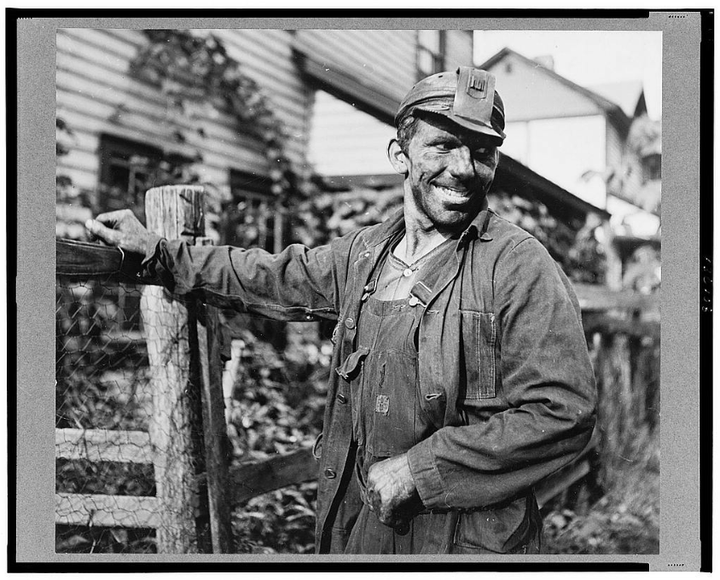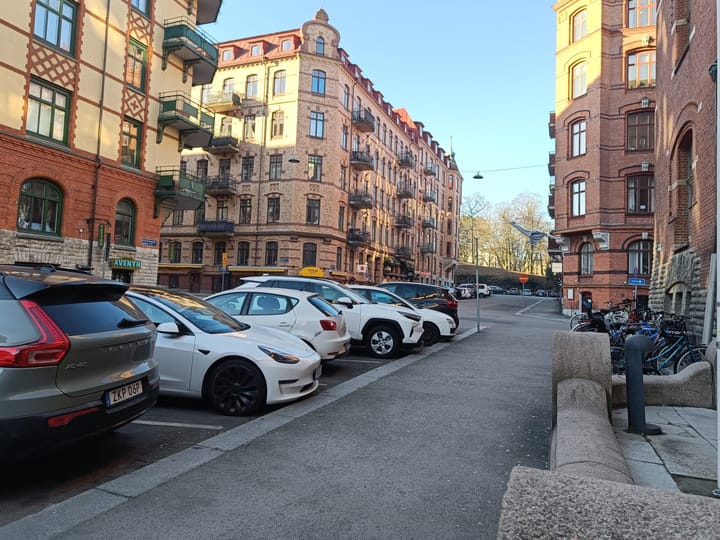Week 20 / 2024

What I intend for these weeknotes is that they focus on, or at least feature prominently, the work I've been doing in the week that they're for.
That won't always be practical, of course: sometimes there will be work that can't be talked about, for instance. And sometimes there will be weeks where the work that got done just wasn't the sort of stuff that makes for interesting weeknotes.
Yeah—guess who's been doing a lot of admin and popcorn tasks this week?
That said, there's always stuff to talk about, if you really look for it—and if you came up in the Gilded Age of Blogging, as I did, then you learned how to look! "Three things make a post", we used to say back then. So, here we go...
One Big Thing
This week's Big Thing is the thought—or perhaps more accurately the collection of thoughts—that came from reading this interview of veteran evolutionary biologist Daniel Brooks by the science fiction writer Peter Watts.
I've long been an admirer of Watts's fiction, but I have to confess I find his acutely doomerish why-bother-we're-all-screwed position on climate change to be deeply frustrating. This is almost certainly because it represents a latent position that lurks in me, too: if you're aware of not only the scale of the problem, but also the laggard hand-sitting going on at the policy level, then the temptation to go the full Wittgenstein is very strong.
So, look: the 1.5 degrees goal, the Paris agreement, is dead in the water. It plausibly always was. We're quite probably past that line already, and we'll go a lot further past it. The consequences of that breach are going to be very ugly. We're seeing some of them already, in fact, but they're not necessarily described as climate change consequences, so we don't notice.
But we're going to notice, because it's going to get much more obvious. The ugliness will be unevenly distributed, and much ink and airtime will be spilled over finding new justifications for keeping that distribution as uneven as possible. If you're the sort of person who might customarily associate the words "height" and "civilisation", then you need to appreciate that there will be a fall. No ifs, no buts. We have done too little, too late. Electric personal vehicles and rooftop solar are a squirt-gun against a forest fire. There will be a price to pay. There will be a fall.
But the question of how far we fall, and how long we stay down? That question is still open.
It is conceivable that if all of humanity suddenly decided to change its behavior, right now, we would emerge after 2050 with most everything intact, and we would be “OK.” We don’t think that’s realistic. It is a possibility, but we don’t think that’s a realistic possibility. We think that, in fact, most of humanity is committed to business as usual, and that’s what we’re really talking about: What can we begin doing now to try to shorten the period of time after the collapse, before we “recover”? In other words — and this is in analogy with Asimov’s Foundation trilogy — if we do nothing, there’s going to be a collapse and it’ll take 30,000 years for the galaxy to recover. But if we start doing things now, then it maybe only takes 1,000 years to recover. So using that analogy, what can some human beings start to do now that would shorten the period of time necessary to recover? Could we, in fact, recover within a generation? Could we be without a global internet for 20 years, but within 20 years, could we have a global internet back again?
That is Brooks's argument, and I have a lot of time for someone willing to be honest about it. Is he right? I'm not sure it matters, in the proleptic sense of that question. What matters for me is that this way of looking at it offers an unflinching explanation of the challenge, as well as providing a framework that not only justifies the decision to act, but also directs the sort of action you might take.
And that is the very biggest Big Thing in this whole business, if you ask me: the question of what we're doing, and what we're doing it for.
One Small Thing
Today's post from the Poems Ancient & Modern newsletter is was about the Wordsworth classic whose first line almost everyone knows, even if that's the only bit the know. Have you ever wander'd lonely as a cloud? Of course you have!
In somewhat daring fashion, the author of the newsletter suggested the possibility of reading it not as an exemplar of the Romantic movement (and hence opposed, at some level, to the rise of industry and what we now think of as capitalism), but rather as a sort of hymn to the economic thought of Adam Smith etc, who were also its contemporaries. This is, to say the least, to read the poem against the grain... and not a particularly productive reading, either, if you ask me.
But there's a point nonetheless:
[...] to remind us that the great works of art are never completed by interpretation. There’s always more. The great poems read us, more than we read them. They test the capaciousness of our intelligence and imagination.
Why include this here? Because the author's point is almost exactly the same as one I make toward the end of my essay on worldbuilding! The fabula is never exhausted by the story, the story is never exhausted by the text, and worlds should be open, because open worlds invite "the capaciousness of our intelligence and imagination", in Bottum's delightful turn of phrase.
(And if you're interested in understanding what I'm trying to do here at Worldbuilding Agency, well, you should really go read that essay.)
A Clipping
You should also go read Karl Schroeder's substack. I mean the whole thing, really, but this particular piece got earmarked as this week's clipping very early on, due to its very plain-spoken and lucid explanation of some foundational aspects of a futuring practice.
I've spent over fifteen years trying to explain to people what horizon scanning is all about; from now on, I'll just quote this:
Horizon scanning is the practice of constantly watching for what in foresight we call ‘weak signals of change.’ These can be anything—changes in peoples’ voting habits, a decline in shoe sales, the appearance of multiple airship freight companies in Canada despite none owning a functioning airship. Or a mad billionaire building a giant rocket in south Texas… oh wait, maybe that’s a strong signal of change. You should track those too.
But not to figure out what’s happening. The worst rabbit hole you can go down is trying to figure it all out. The point is to recognize that something is happening, by noticing when canaries start falling. Sometimes it’s enough to do the noticing, and bring the fact to other peoples’ attention. Smarter thinkers can figure it out; or, you can let your own imagination run riot over the possible reasons. Either way, you use horizon scanning to perceive and collect the new.
Click through and keep scrolling for more on cultivating generalism, reading diffractively and being wrong. I've never needed much help with the latter, if I'm honest, though I hope I've gotten better at being wrong usefully.
(Karl's a lovely fellow, and terrifyingly prolix, even by my standards: there's gotta be a good three thousand words of material there, before you hit the paid-content cut. Most folk wouldn't put that much material after the cut! Well worth a free follow, if you ask me.)
This has been the Worldbuilding Agency weeknotes for Week 20 of 2024. Thanks for reading! If you've enjoyed them, it's free to subscribe, but please consider supporting this research journal with a small monthly payment—you'll get access to the occasional bit of Exclusive Content ™️, but first and foremost you'll get the warm glow that only ever comes from enabling fully independent and climate-focussed foresight research to continue.
(If you are already subscribed, please send to a friend who you think might also like it!)
Have a good weekend.





Comments ()